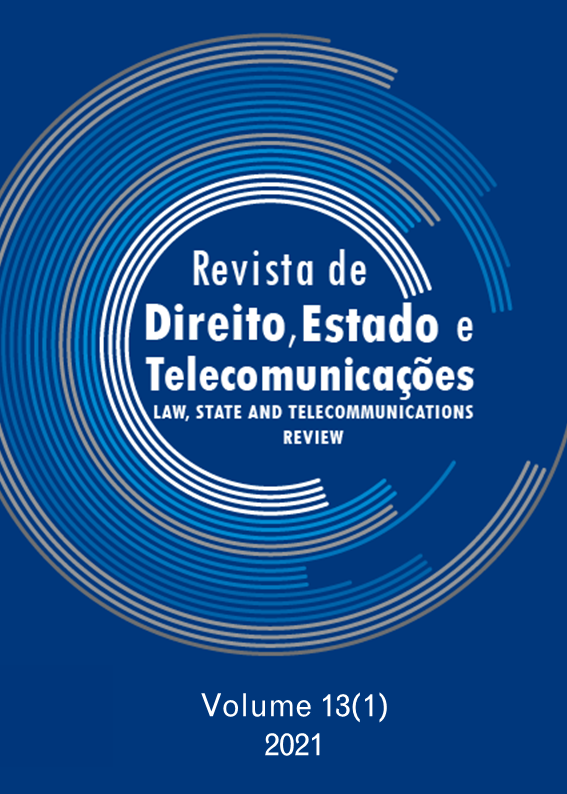REGULATORY APPROACHES OF THE RIGHT TO INFORMATION ACCESS IN THE ARAB STATES
DOI:
https://doi.org/10.26512/lstr.v13i1.36619Keywords:
Right to Access to Information, Open-governance, Accountability, Arab Region.Abstract
Purpose – However, the Right to Access to Information (RTI)[1] is guaranteed by article 91 of the Universal Declaration of Human Rights and more than 120 have adopted such a right, fewer Arab countries; mainly in Tunisia, Egypt, Morocco and Algeria, whose constitutions included the right of people to access information. Hence, the purpose of this research is to assess and provide an in-depth study of the status quo of the right to access to public information in the Arab region as well as to highlight whether the adopted laws have met people need of information.
Methodology/Approach/Design – In order to achieve the purpose of this research project, a ‘non-doctrinal’ empirical socio-legal research type of qualitative method has been undertaken to examine the right to access and request information in Arab States.
Findings – The paper findings shows that Arab countries are not keeping the pace on adopting and implementing the Right to Access to Information laws where culture of secrecy prevails and overcomes the openness in the Arab World.
1 The term “Right to Access to Information” RTI will be used in this article interchangeably as the right to information RTI, Freedom of Information FOI, and Right to Know RTK. Calland 2010 refers to the terminology point by stating that civil society activists, advocates and authors do not prefer using the ‘Freedom of Information’ terminology of choice in this field; instead, ‘the right of access to information’ (ATI) or ‘the right to know’ RTK have gained a kind of ascendency in the past years.
Downloads
References
Breit, R., Henman, P., Lidberg, J., & Snell, R. (2012). Submission to the Review of the Freedom of Information Act, 1982 and the Australian Information Commissioner Act, 2010. Accessed October 10, 2020.
Butenschøn, N. A. (2015). Arab citizen and the Arab state: The “Arab Spring” as a critical juncture in contemporary
Escaleras, M., Lin, S., & Register, C. (2010). Freedom of information acts and public sector corruption. Public Choice, 145(3-4), 435-460; Martini, M. (2014). Right to information laws: Impact and implementation. Transparency International. For more information, please see: https://www.u4.no/publications/right-to-information-laws-impact-and-implementation.pdf. (accessed October 10th, 2019).
Goswami, S. (2013), ‘RTI Act: Bangladesh Should Further Proactive Disclosure’, available at http://www.thedailystar.net/beta2/news/bangladesh-should-further-proactive-disclosures/, accessed October 20, 2020.
Islam, R. (2006). Does more transparency go along with better governance? Economics & Politics, 18(2), 121-167.
Lidberg, J. (2016). Information access evolution: Assessing freedom of information reforms in Australia. Australian Journalism Review, 38(1), 73.
McMillan, J. (2010). Freedom of information reforms and cultural change. Public administration today (23), 43. paper presented at a UNESCO Conference to mark World Press Freedom Day, Brisbane (02/05/2010)
Michener, G., & Worthy, B. (2018). The information-gathering matrix: A framework for conceptualizing the use of freedom of information laws. Administration & Society, 50(4), 476-500.
Puddephatt, A., & Zausmer, R. (2011). Towards open and transparent government. International Experiences and Best Practice. Global Partners and Associates. p 16-28
Roberts, A. (2006). Blacked out: Government secrecy in the information age: Cambridge University Press. P.144
Sætra, H. S. (2019). The tyranny of perceived opinion: Freedom and information in the era of big data. Technology in Society, 59, 101155.
Schartum, D. W. (2004). Information access legislation for the future? Possibilities according to a Norwegian experience. Public Sector Information in the Digital Age: Between Markets, Public Management and Citizens’ Rights. Cheltenham: Edward Elgar Publishing, 69-90.
Shepherd, E., Stevenson, A., & Flinn, A. (2010). Information governance, records management, and freedom of information: A study of local government authorities in England. Government Information Quarterly, 27(4), 337-345.
Shukeir, Y. (2013). Qanun Daman Haq Alhusul Ealaa Almaelumat fi Al'urdun: Dirasuh Muqarinuh Mae Almaeayir Alduwaliih [Jordanian Access to Information Law: A comparative Study with the International Standards]. Jordan: Al -Quds Center for Political Studies.
Shukeir, Y. (2019). Access to Information in the Arab World “Focusing on Jordan, Tunisia and Yemen” Policy Paper: The Friedrich Naumann Foundation for Freedom & Arab Reporters for Investigative Journalism ARIJ. Please see the paper at https://arij.net/wp-content/uploads/2019/02/Freedom-of-Information-in-the-Arab-World_ENG.pdf
Solomon, D. (2008). The Right to Information: Reviewing Queensland’s. Freedom of Information Act’, Report of the FOI Independent Review Panel. ISB 978-0-646-49406-7
Xiao, W. (2010). China's limited push model of FOI legislation. Government Information Quarterly, 27(4), 346-351.
Downloads
Published
How to Cite
Issue
Section
License
Copyright (c) 2021 Law, State and Telecommunications Review

This work is licensed under a Creative Commons Attribution 4.0 International License.
By submitting this paper to the Law, State and Telecommunications Review,
I hereby declare that I agree to the terms of the Creative Commons Attribution 4.0 International (CC BY 4.0).


